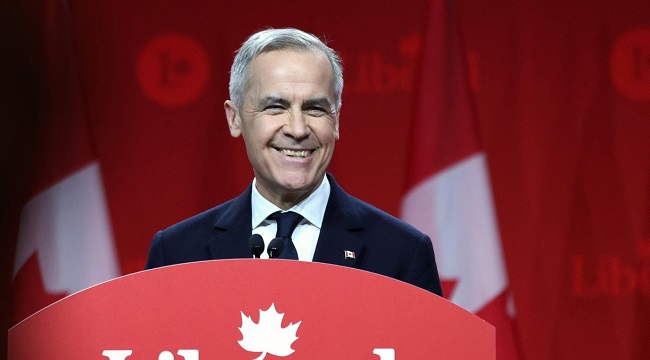
Canada plans to recognise a Palestinian state at the UN General Assembly in September, Prime Minister Mark Carney said Wednesday, a major policy shift that drew an angry response from US President Donald Trump and was rejected by Israel.
Carney said the move was necessary to preserve hopes of a two-state solution to the Israeli-Palestinian conflict, a long-standing Canadian goal that was “being eroded before our eyes.”
“Canada intends to recognise the State of Palestine at the 80th Session of the United Nations General Assembly in September 2025,” the prime minister said.
This makes Canada — a G7 nation — the third country, following recent announcements by France and the United Kingdom, to signal plans to recognise a Palestinian state in September.
Carney said the worsening suffering of civilians in Gaza left “no room for delay in coordinated international action to support peace.”
Israel blasted Canada’s announcement as part of a “distorted campaign of international pressure,” while Trump warned that trade negotiations with Ottawa may not proceed smoothly.
“Wow! Canada has just announced that it is backing statehood for Palestine,” the US president wrote on his Truth Social platform.
“That will make it very hard for us to make a Trade Deal with them.”
Asked by reporters if there was a scenario where Canada could change its position before the UN meeting, Carney said: “There’s a scenario (but) possibly one that I can’t imagine.”
Canada’s intention “is predicated on the Palestinian Authority’s commitment to much-needed reforms,” Carney said, referring to the body led by President Mahmoud Abbas, which has civil authority in parts of the Israeli-occupied West Bank.
Carney said his plans were further predicated on Abbas’s pledge to “hold general elections in 2026 in which Hamas can play no part, and to demilitarise the Palestinian state.”
With Wednesday’s announcement, Carney positioned Canada alongside France, after President Emmanuel Macron said his country would formally recognise a Palestinian state during the UN meeting, the most powerful European nation to announce such a move.
The Israeli embassy in Ottawa said, “Recognising a Palestinian state in the absence of accountable government, functioning institutions, or benevolent leadership, rewards and legitimises the monstrous barbarity of Hamas on October 7, 2023.”
The PA’s Abbas welcomed the announcement as a “historic” decision, while France said the countries would work together “to revive the prospect of peace in the region.”
Canada’s plan goes a step further than this week’s announcement by British Prime Minister Keir Starmer.
Starmer said the UK will formally recognise the State of Palestine in September unless Israel takes various “substantive steps,” including agreeing to a ceasefire in Gaza.
Carney stressed that Canada has been an unwavering member of the group of nations that hoped a two-state solution “would be achieved as part of a peace process built around a negotiated settlement between the Israeli government and the Palestinian Authority.”
“Regrettably, this approach is no longer tenable,” he said, citing “Hamas terrorism” and the group’s “longstanding violent rejection of Israel’s right to exist.”
The peace process has also been eroded by the expansion of Israeli settlements across the occupied West Bank and east Jerusalem, Carney said.
The prime minister said a two-state solution was growing increasingly remote, with a vote in Israel’s parliament “calling for the annexation of the West Bank,” as well as Israel’s “ongoing failure” to prevent a humanitarian catastrophe in Gaza.
He framed his decision as one aimed at safeguarding Israel’s future.
“Any path to lasting peace for Israel also requires a viable and stable Palestinian state, and one that recognises Israel’s inalienable right to security and peace,” Carney said. (Punch)

